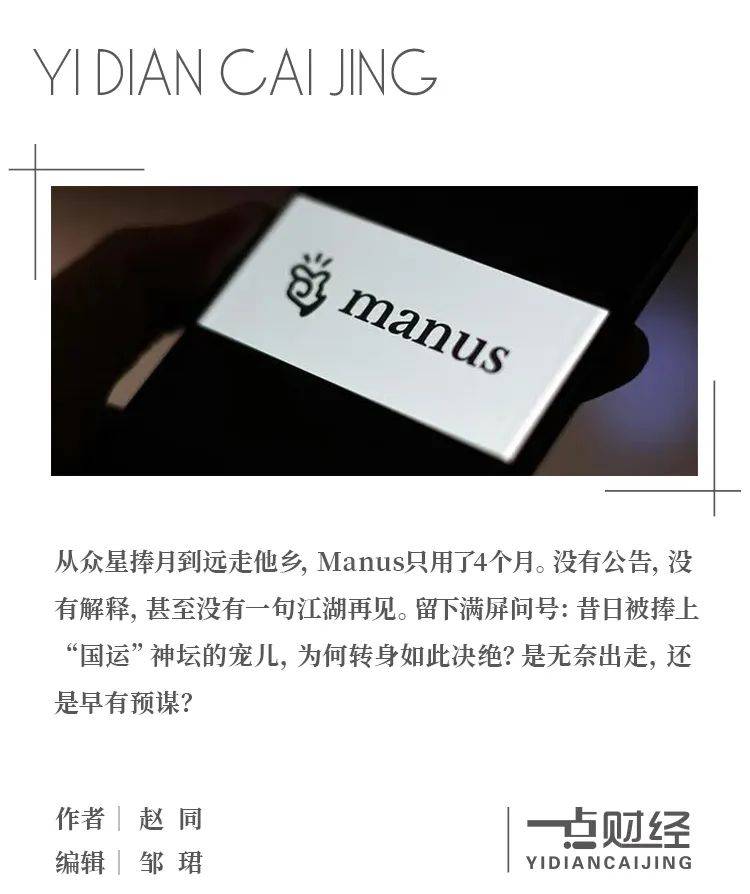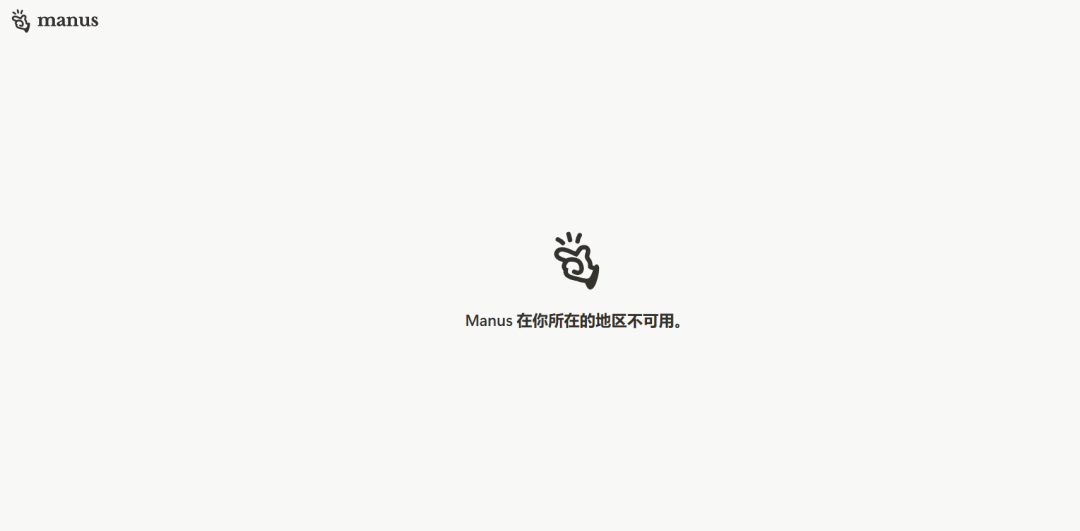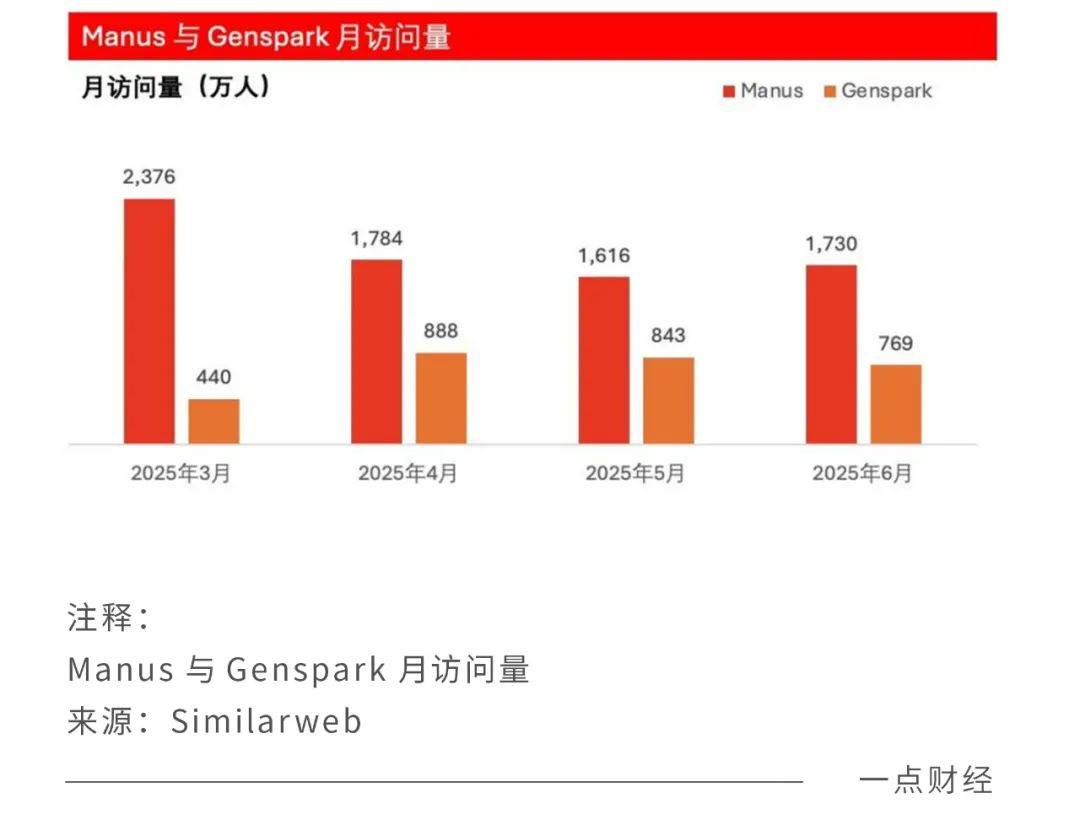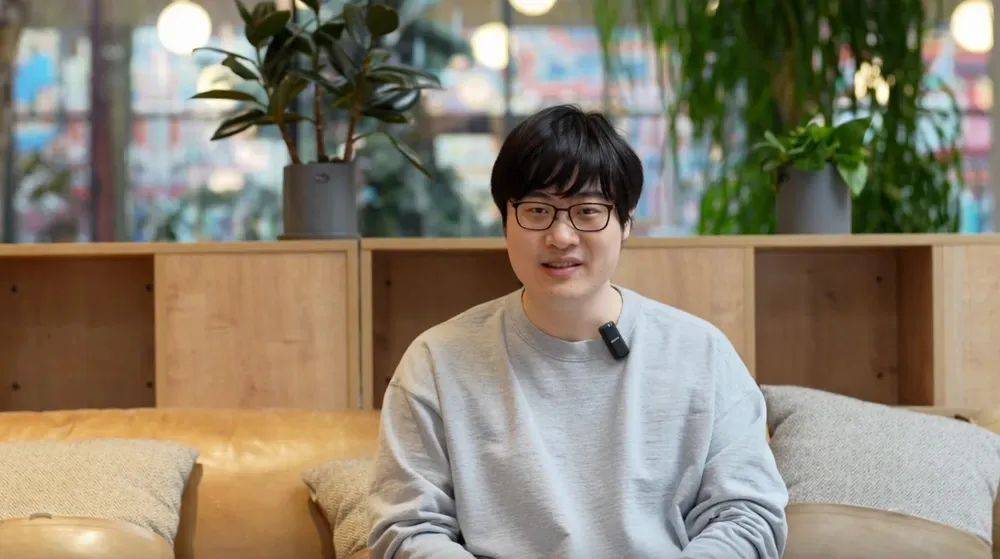Manus' Silent Retreat: What Secrets Did It Carry Away?
![]() 07/25 2025
07/25 2025
![]() 510
510

After the closed beta invitation codes surged to a staggering 100,000 yuan each, Manus suddenly "fled" to Singapore.
It became the first prominent AI company to "escape" overseas, leaving behind users brimming with anticipation and scalpers hoping to profit from speculation, all in a state of disbelief.
Launched in March this year by a Chinese team, Manus was heralded as the "next DeepSeek" – not just an AI chat tool, but an intelligent agent capable of executing tasks and delivering results.
This sparked immense enthusiasm, with Manus overnight being deemed a "national-level product," as if not using it was unpatriotic. The closed beta invitation codes skyrocketed in value, surpassing even Jay Chou's concert tickets in rarity and cost.
Just as the frenzy reached its peak, the cooling down was swift. Overnight, Manus's social media accounts in China were wiped clean, the website became inaccessible, the entire team was laid off, and some collaborations were terminated. The founder, Xiao Hong, took the core members to Singapore.
From being celebrated by all to departing for foreign shores, Manus's journey lasted just four months. No announcement, no explanation, not even a farewell. It left a screen full of question marks: Why did the former darling of the "national destiny" pedestal turn around so decisively? Was it a reluctant departure or a premeditated move?
Currently, there are two prevailing opinions in the market. One is to criticize Manus for ruthlessly exploiting users and then fleeing, expressing outrage. The other believes that Manus did not intend to "flee" but had other grievances, expressing sympathy.
On July 19, Manus founder Ji Yichao rarely spoke out and publicly responded for the first time to the reasons for withdrawing from the Chinese market. However, it was only a superficial technical explanation, leaving many still puzzled about why Manus had to relocate to Singapore.
What secrets did it carry away?

Making a Big Fuss and Quietly Leaving
"No one would be more reluctant to leave Wuhan than Xiao Hong."
The evaluation of former Manus employees stands in stark contrast to the resolute "retreat" that unfolded.
Xiao Hong, a native of Jiangxi, graduated from Huazhong University of Science and Technology with a degree in software engineering and has a penchant for hot dry noodles. Unlike many entrepreneurs eager to settle in Beijing, Shanghai, Guangzhou, or Shenzhen, he mostly stayed rooted in Wuhan after graduation, displaying a stubbornness to "defend the city."
In 2022, Xiao Hong founded "Butterfly Effect," the parent company of Manus, and launched the AI browser plugin Monica. When seeking investment for Monica, a top-tier venture capital fund rejected it because Monica was aimed at the overseas market, yet Xiao Hong was unwilling to move away from Wuhan.
This initial deep affection for "not wanting to leave" and the current resolute decision to "leave without saying goodbye" form a poignant irony of fate.
Earlier this year, Xiao Hong presented his new work, Manus, and some bloggers immediately hailed it as a "national-level product." The hat of "patriotism" became the most potent marketing aphrodisiac. Nowadays, many bloggers who once cheered are deleting their posts overnight, wishing to erase their praises with bleach.
What feels jarring is that this "national-level artifact" is permeated with a western flavor: product introductions, founder speeches, function demonstrations, all in English, with hardly any Chinese materials. In response to questions, some defended it as "paving the way for going overseas," but it ended up directly relocating to Singapore.
In fact, while Manus verbally advocated for globalization, it did not stir up the same frenzy overseas as DeepSeek. After being released for some time, Manus remained silent on mainstream English technology media and open-source communities.
Its subsequent actions – the founder appearing on podcasts, distributing codes in small circles, creating momentum through specific bloggers, etc. – were more akin to a meticulously designed "export to domestic sales" marketing strategy, and the tactics were already overused:
Creating a sense of scarcity (limited invitation codes) + incendiary rhetoric (screaming reviews of "explosive" and "iPhone moments") + binding keywords (riding on DeepSeek, etc.).
This combination of tactics accurately tapped into human weaknesses and market hotspots, driving the closed beta invitation codes to skyrocket to 100,000 yuan each.
Some might argue that they haven't used Manus's products, so its marketing has nothing to do with them. This notion seems naive. In today's fiercely competitive AI circle, attention itself is a form of wealth. Every second of your attention is real money in someone else's pocket.
In April this year, Butterfly Effect completed a B-round funding of US$75 million, with a valuation soaring to US$500 million. Behind these numbers, who dares to say there was no contribution from the frenzy of traffic?
Of course, the company has the right to leave, but Manus's farewell can be described as a "silent escape": no announcement, no explanation, social media accounts cleared overnight, and the official website directly blocking domestic IP addresses.
 △Screenshot of Manus's official website
△Screenshot of Manus's official website
It's akin to checking out a friend's Moments one day only to find a horizontal line. Sending another message only to receive a response after being deleted as a friend, leaving those who were full of expectations stunned and heartbroken.
Jin Yong once said, "Life is about making a big fuss and then quietly leaving." Manus also made a big fuss in China and then quietly left, just not very gracefully.
What's even more heartbreaking is that before the Chinese team was completely disbanded, Manus had already commenced large-scale recruitment in Singapore. According to local recruitment platform MyCareersFuture, these positions offer monthly salaries ranging from US$8,000 to US$16,000, with some positions even offering up to US$18,000 per month.
As for some domestic collaborations, they are estimated to be unresolved. An employee of Manus, who had previously promised to "build an intelligent agent with Alibaba Tongyi Qianwen in Chinese," said that it "will not continue to move forward."
In the end, this domestic farce ended in disarray: users paid with enthusiasm and expectations, scalpers paid with real money, and Xiao Hong paid with a one-way ticket to Singapore.
Whose revelry was this feast, and whose cost did it entail?

The Truth Behind the Departure: Fearing the US Stick, Worrying About One's Own Foundation
On the surface, it seems that Manus was forced away by the US stick.
In April this year, the US "tightening spell" on AI chips and technologies towards China intensified, with Intel, AMD, and NVIDIA, these "water carriers," being closely monitored.
Almost simultaneously, Manus's parent company, Butterfly Effect, completed that US$75 million funding. What's intriguing is that the lead investor was the US venture capital firm Benchmark, and the purpose of the funds was clearly directed towards expanding into international markets such as the US, Japan, and the Middle East.
Receiving Benchmark's money was both a lifeline and a shackle for Manus.
Because when capital giants like Benchmark invest in startups, they often offer a "buy one, get one free" deal – in addition to giving money, they also attach a set of tailored "compliance guidelines," clearly outlining how to adjust the structure, where to relocate the entity, and where to set up headquarters.
Look at the script of AI video application HeyGen: it deregistered its Chinese entity in 2023, received money from Benchmark in 2024, and then moved its headquarters from Shenzhen to Los Angeles.
Subsequently, Manus entered the US regulatory spotlight. News website Semafor reported that the US was closely watching Manus's B-round funding. Therefore, it's widely interpreted that Manus's choice to relocate far away to Singapore was not accidental. On the one hand, it was to circumvent US capital controls on China, and on the other hand, it was to more easily obtain chips.
An interesting twist is that these days, NVIDIA's Jen-Hsun Huang has embarked on his third visit to China this year and stated that the US has approved NVIDIA's export license and will start selling H20 chips to the Chinese market. The H20 is an AI accelerator designed specifically for the Chinese market, which was restricted by the US from being sold to China in April this year. In addition, Jen-Hsun Huang also said:
"China already has sufficient computing power."
If the primary reason for Manus's departure was restricted access to chips, and there is now a turnaround in domestic chips, would it still leave?
However, attributing Manus's "retreat" entirely to US regulation and capital coercion is not comprehensive enough.
Because Manus's own foundation has also begun to shake.
Similarweb data shows that Manus's monthly visits peaked in March (23.76 million), then fell back to 16.16 million in May, with a slight rebound to 17.3 million in June.

The direct reason for the cliff-like decline in monthly active users is simple: the user experience did not meet expectations.
At that time, Manus set a very high tone, but users generally reported that while Manus might have strong execution, it had a strong "amateurish team" aura and often made inexplicable low-level mistakes. For example:
Ask Manus to plan a trip, and it recommends "using a hot pot coupon to go to Antarctica." Ask it to analyze stocks, and it only outputs basic stock price trends, omitting key indicators.
The fundamental reason is that Manus does not have a self-developed underlying large model and relies heavily on the splicing of external technologies to complete tasks. For instance, to break down complex tasks into multiple subtasks, Manus needs to simultaneously call multiple large model APIs. Its essence lies in "integration" rather than "creation," making it an ultimate "shell player." For this reason, the industry has continuously questioned it: If it relies solely on shelling, where is its technological moat?
What's even more thought-provoking is that the Manus team does not shy away from the "shelling" label but rather takes pride in it. Manus co-founder Ji Yichao once publicly declared: "Ultimate shelling is victory."
Shelling feels good for a while, but the barrier to entry is low. If everything relies on shelling, what's the point of core technology? Without self-developed core technology barriers, what can you compete with others in a protracted battle?
Foreign media The Information revealed in March this year that Manus, which needs to simultaneously call multiple large model APIs to handle complex tasks, has long been caught in the double squeeze of "insufficient server capacity" and "sky-high operating costs." Some industry insiders said that Manus's move to Singapore was to initiate more aggressive commercialization, as foreign users, especially European and American users, have a stronger willingness to pay for intelligent agents, thereby alleviating operational pressure.
So you see, Manus's departure was not only due to the chill of the "US stick" hanging over its head but also due to the shaking caused by its own "soft foundation." While the external storm is fierce, the internal structural cracks may be a deeper crisis.

A Multiple-Choice Question Turned into a Life-and-Death Question: The Tragedy of Entrepreneurship Behind Globalization
When Manus's "retreat" became an epitome of the fate of some AI startups, a heavier proposition emerged simultaneously:
In the national game, startups are faced with a difficult choice – the idealism of "globalization" and the realism of "whether they can survive."
In this "retreat controversy," Xiao Hong wrote a sentence on "Jike": "If there is a good result in the end, proving that as a founder born in China, I can also make a global product in a new environment, that would be great."

This statement caused much controversy: Must the operating entity be relocated overseas to be considered "globalized"? Is it impossible to create world-class products by staying local?
Don't rush to give an answer yet; let's go back to 2016 first.
At the time, on a certain talk show, the host asked Pinduoduo founder Huang Zheng: "If you were Zhang Yiming, how would you face BAT?"
Huang Zheng replied: "If I were Zhang Yiming, I would be more aggressive in globalization. Because our generation of internet entrepreneurs has a greater global vision compared to the previous generation."
Later, Zhang Yiming's short video product TikTok and Huang Zheng's e-commerce product Temu indeed became some of the most successful globalized products from China, far surpassing many predecessors. This proves that staying local can also lead to going global.
That was a golden era, and globalization was a multiple-choice question full of opportunities.
However, times have changed. The options in the multiple-choice question are being replaced by survival questions one by one.
In 2019, Huawei was included in the "Entity List," marking the beginning of high-pressure technological sanctions.
Faced with relentless suppression, when asked by a reporter earlier this year, "What do you think in your heart?", Ren Zhengfei replied simply and powerfully: "I haven't thought about it, and thinking about it is useless. Don't think about difficulties, just do it, and move forward step by step."
Behind this steadfastness is Huawei's solid moat forged over decades of "digging deep holes and amassing grain."
In 2020, TikTok confronted a dire crisis in the United States, faced with the ultimatum of "sell or be banned." Nonetheless, ByteDance persevered under pressure and continued to advance cautiously. Despite still weathering the storm, it has demonstrated that even amidst the fiercest turbulence, Chinese products retain the resilience to firmly establish themselves in the global market.
This February, the US initiated a blockade against DeepSeek. Instead of retreating, DeepSeek opted to embrace global developers with an even more open mindset.
Fu Cong, China's Permanent Representative to the United Nations, posed a question at a press conference: "From Huawei to TikTok, to DeepSeek, how many more companies does the US intend to ban?"
It's important to note that Manus is not Huawei, TikTok, or DeepSeek, and we shouldn't evaluate it from a moral high ground. The path it has chosen is a survival strategy in a high-pressure environment.
However, venturing overseas is not necessarily a guarantee of safety. In the current tide of globalization, it is fraught with intense waves fueled by prejudice. Previously, even after many people learned that TikTok CEO Shou Zi Chew is Singaporean, a US official still aggressively and maliciously questioned him about his citizenship, deliberately complicating TikTok's relationship with China.
Globalization is not a multiple-choice question. Leaving is one option, while staying put and opening doors to the world is another. The future may hold even more possibilities.
It can only be said that when survival becomes paramount, every step taken by entrepreneurs is fraught with challenges and uncertainty.

Conclusion
In 2013, Xiao Hong and his team developed the WeChat campus drifting bottle for Huazhong University of Science and Technology, inspired by their idol, WeChat's Zhang Xiaolong.
Today, Manus, having left its homeland, resembles a drifting bottle bobbing on the waves of capital.
This drifting bottle carries the fervent hopes of "national prosperity" while also enduring the skepticism and condemnation of "desertion." Its rapid rise and fall reveal its lack of experience and the underlying pain of surviving in the cracks.
How far can a "global company" without roots travel? Time may provide the answer, but one thing is certain: in the vast, turbulent sea of globalization, ships without a solid core are destined to be swallowed by the waves or lose their direction.







